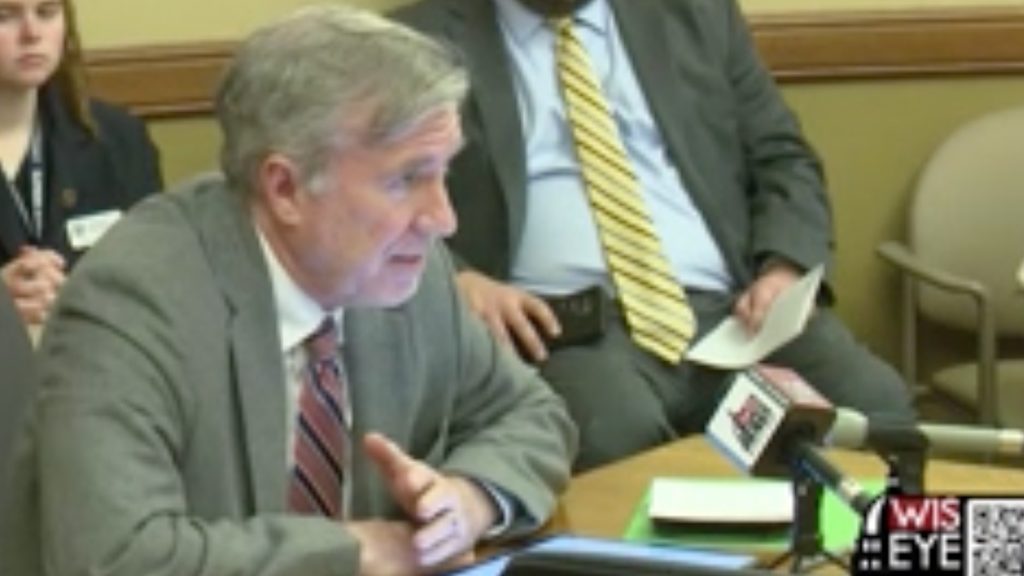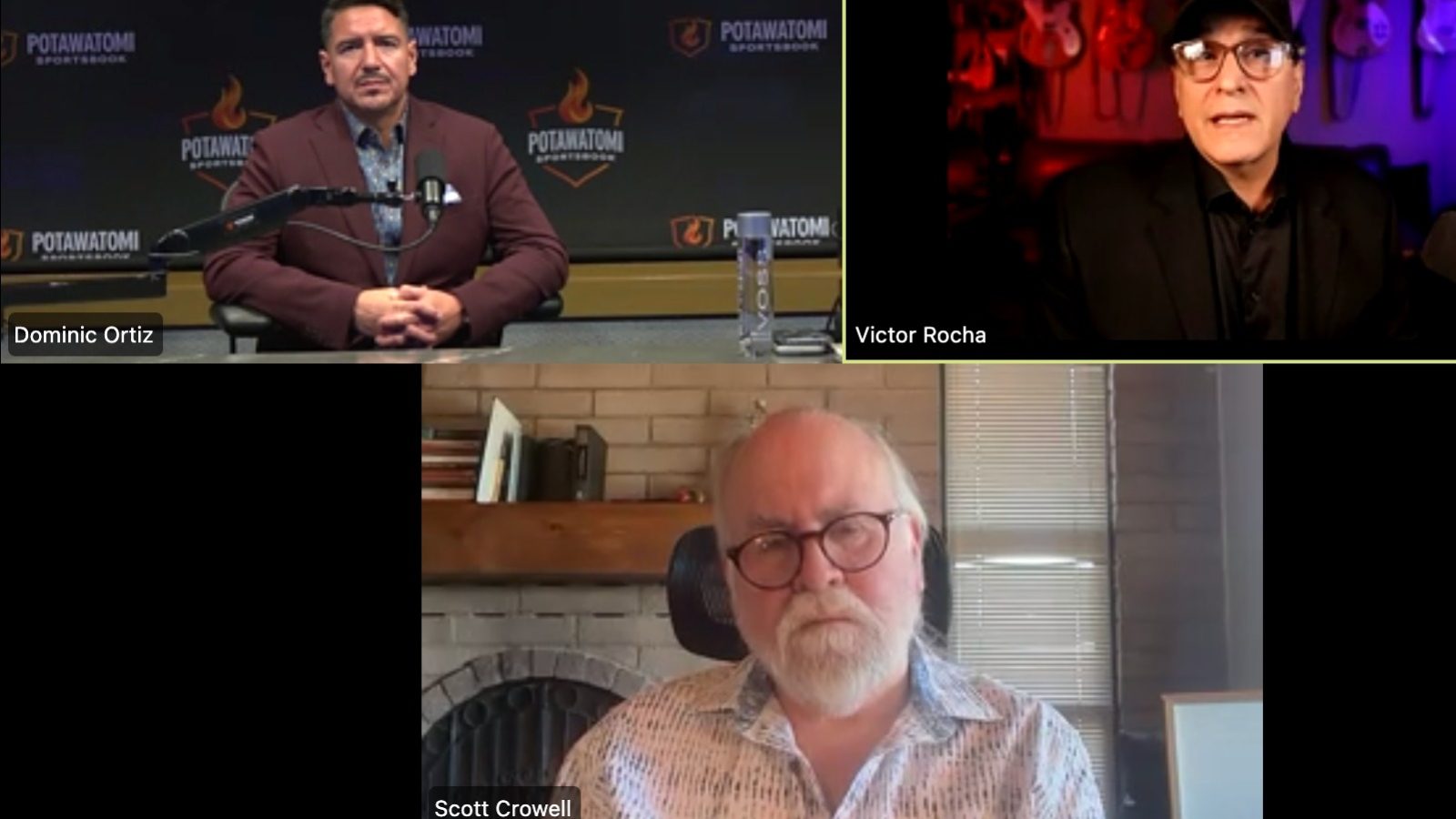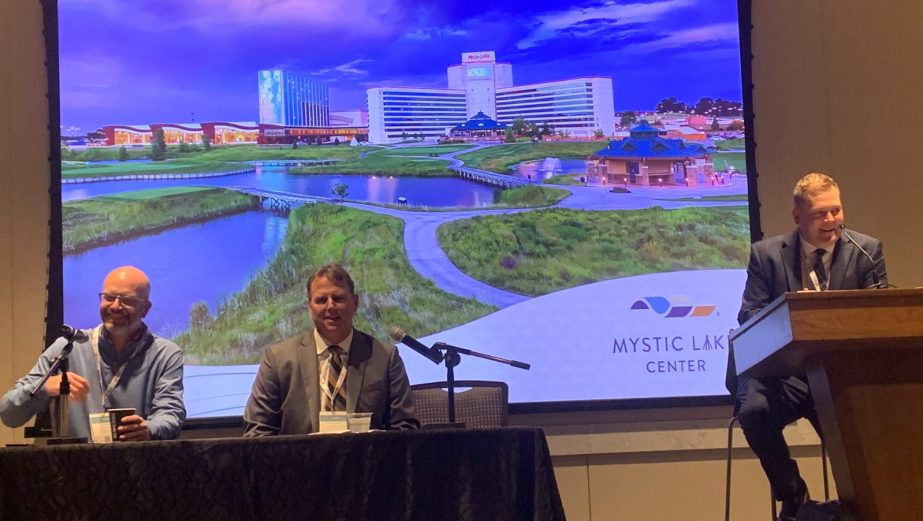As much as the Sports Betting Alliance (SBA) aims to sell Indian Country on the idea that it wants to play nice, it made what Wisconsin tribes are calling a “misstep” Tuesday when lobbyist Damon Stewart told a state senate committee that “this bill won’t get the job done because national brands cannot operate” under it.
That statement and others were construed as fighting words by Wisconsin tribes, who are backing SB 592, which would alter the current law just enough to allow for legal digital sports betting under the Indian Gaming Regulatory Act (IGRA), with the tribes in charge. The bill was filed 13 days ago, and Dominic Ortiz, CEO and General Manager of Potawatomi Hotel & Casino, said Wednesday that “what the SBA did was come to the table and tell us we are not capable of running this, and they said they were surprised that no one reached out to them. Yesterday, they showed their face and showed their greed by saying that we don’t know what we’re doing.”
Wisconsin’s tribes have gaming exclusivity in the state, and collectively own and operate more than 20 Las Vegas-style casinos — some with retail sportsbooks. In 2021, the Oneida Nation became the first in the state to add in-person sports betting. Ortiz said they were not contacted by the SBA before the hearing Tuesday.
Ortiz, who along with tribal lawyer Scott Crowell, was a guest Wednesday on the “New Normal: Hub and Spoke Controversy: Why Wisconsin’s Tribal Betting Plan Faces Unexpected Opposition,” said that just before the webinar started, he was talking with tribal leaders from across the state who were also unhappy with the SBA after Tuesday’s hearing.
Testimony only inflamed an ongoing saga
At the hearing before the Senate Committee on Agriculture and Commerce, Stewart told lawmakers that SBA members bet365, BetMGM, DraftKings, Fanatics Sportsbook, and FanDuel want to enter Wisconsin in partnership with the tribes. But they do not want to do so under an IGRA model, which would require a commercial gaming partner to pay 60% of revenue to a partner tribe. In defending his clients’ position, Stewart repeatedly said that a market run by the tribes would not maximize revenue for the state nor would it give consumers enough choice.

Jeff Crawford, on behalf of the Forest County Potawatomi Tribe, challenged Stewart.
“It’s something that is a little bit concerning to us, that they are sort of implying that we don’t have the capability of operating statewide mobile sports betting,” he testified.
The reaction is unsurprising, given the ongoing drama between federally recognized tribes in the U.S. and commercial operators. Since California’s tribes killed a commercial sports betting proposal in 2022, commercial operators, led by FanDuel and now the SBA, have been trying to mend fences. The SBA has been trying to find a middle ground with tribes in multiple states, including California and Minnesota, in an attempt to open more legal sports betting markets.
The companies have made many goodwill gestures, from signing on as sponsors to the Indian Gaming Association Mid-Year Conference in September to wining and dining tribal leaders at the Global Gaming Expo in Las Vegas in October, and grieving the unexpected death of IGA Chairman Ernie Stevens. But progress toward partnerships for legal sports betting with the tribes has been incremental.
In Wisconsin, Ortiz said the SBA did not contact any tribes before Stewart walked into the state capitol and told lawmakers that without his clients, Wisconsin would only have small platforms with few offerings and that the market would “not be robust enough” to tamp down the illegal market. He said that commercial operators “could not afford” to operate in Wisconsin under an IGRA model.
Florida is only true IGRA model operating
Lawmakers struggled to understand how an IGRA model would work, asking why the commercial operators couldn’t share every $1 of profit 60%-40%, until Stewart made it clear that the split is on revenue — which must then be used to pay expenses — not profit.
Florida is currently the only U.S. state with sports betting under an IGRA model. In Florida, the Seminoles own the Hard Rock Bet platform, which has a monopoly. The Seminoles were able to get a monopoly by compacting with the state, which agreed to have the phrase “bets are considered placed where received” in the deal. Every sports bet in Florida flows through a server on Seminole land.
Wagering is regulated by a tribal council and the Seminoles pay the state a fixed revenue share of about $500 million for all gambling, per year for the first five years. Other operators could enter the state, but they would have to partner with the Seminoles and, under the letter of IGRA, funnel 60% of revenue to the Seminoles. The model is called a hub-and-spoke model.
Wisconsin’s tribes are ultimately seeking a similar deal — and the new bill appears to include the language needed to get it:
“An event or sports wager made by a person physically located in this state using a mobile or other electronic device if the server or other device used to conduct such event or sports wager is physically located on a federally recognized American Indian tribe’s Indian lands.”
‘They just stepped in it in Wisconsin’
Passing the legislation would be the first step of a multi-part process.
“We want to bring hub-and-spoke forward and this is only one part” of the process, Ortiz said. Once a compact is signed by the state and a tribe, it must be approved by the Bureau of Indian Affairs and posted in the Federal Register.
There was no vote Tuesday. Wisconsin’s legislature is in session year-round, but the final “floor period” is set for Nov. 11-20. Bills introduced in 2025 carry over to the 2026 session.
But the time remaining isn’t really the issue. While Stewart was clear that the SBA opposes SB 592, his delivery left much to be desired from the tribal perspective.
“I’m not the only one who was offended,” Ortiz said. “They just stepped in it in Wisconsin.”






